Premium Only Content
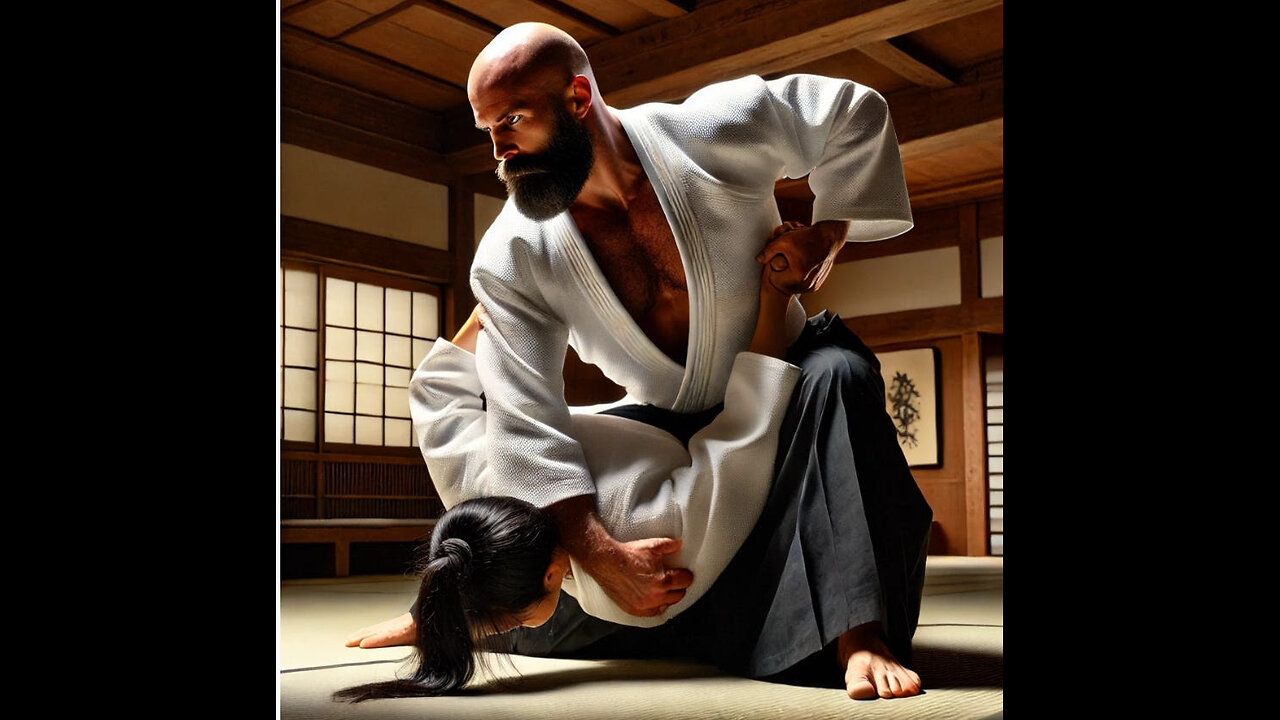
Clif High - Shi ho nage No, I am not going to kiss your cheek.
Aether Pirates of the Matterium!
Hello, humans. Hello, humans. January 29, 519 a.m. Pacific Coast Time. 30 degrees out here on the beach, so all the sand and stuff will be frozen. Which is kind of fun. You know, hard sand to walk on. Anyway, I wanted to talk for a few minutes about mastery. So...
I make the claim of being a master in Aikido. Not merely because I've studied it intensely for over 40 years. No, jeez. 51. 51 years. Okay, so I've been in the martial arts for 61, but I've been studying Aikido for 51 years. And so I claim mastery of it, right? I've got a white belt.
The reason I've got a white belt is because of the attachments that go along to rank in any of these martial arts. You're expected to start teaching at some point, right? Usually they have the, in like judo, they would have... Certainly brown belts and all the black belts would be expected to teach,
but some of the lower ranks would as well, like three down. But mastery is a state of mind, all right? So I'm a white belt, and I never tested for rank because for me it was kind of like, it was moot in the sense that as a kid we were moving every eight to nine months,
so I would never get a chance to really participate in that level of community within the martial art itself. And then I just sort of had the attitude, right? Also, there was also the question of... would i have been a good teacher and probably not okay at that point where i was
still learning i was much more concentrating on the acquisition of the skill so so i'm like um there there's been a few all right so there are uh if you're in the martial arts you know who they are there are several uh extremely respected martial artists that have no ranking all right they have no belts or anything
And once you get to mastery, you see that, eh, that's all organization stuff, you know, it's relationship stuff between the senpai, kohai kind of thing, you know, who's instructor, and this kind of thing. And it does not, to some extent, does not really impact the art. It's a separate aspect of the art.
So I was more concerned in the actual... art itself. And so I'm a master of that art. Now, the thing about this is that all masters are basically the same because they all achieve the same state, which is mastery of their own mind.
So a master woodcarver is every bit a master of his own mind as a martial artist. Because you have to control your mind before you can control your body. Using your mind to do that, obviously, right? And so you find that, you know, there is a commonality among mastery that goes through humans that is independent,
100% independent of the art actually being mastered. So there are women that are masters at baking. And these women are masters at baking. You know, they've done it for... 60 years maybe, and they can do it with a nuance and a clarity of what they're doing that you do not see in someone that is not a master,
right? Same thing with the martial arts. So Aikido is an interesting art. There was a historical period of time when General Douglas MacArthur had conquered Japan at the end of World War II, and they forbade the practice of all the martial arts because they'd been fighting these guys, right?
And the martial artists were pretty deadly, and they just wanted to put a The occupation forces just wanted to put an end to it. Everybody was tired of fighting anyway, so things like karate and so forth were forbidden to be taught for a number of years.
It was during that period of time that Aikido arose because it was a new art. It had not existed before World War II as this art Aikido. It had existed in various many forms, Aiki Jiu-Jitsu primarily, And the I.K.I. part is all about the mastery of your key force, right? Your life force,
the energy that flows through you and how to make it flow, how to store it, all of this kind of stuff. Very, very much derived from similar structures like Taoism and Buddhism. Okay, so MacArthur forbades the teaching of this, Aikido arises. Aikido is an interesting art because it has combinations of, it's really a very hard striking arc.
You know, we have many hard strikes even though you don't see that taught these days. And I've learned combat Aikido and I learned Aikido in the early days. where it wasn't so refined. And this is what we're coming into, this issue of mastery. There is a particular throw. It's called Shiho Nage, a four-direction throw.
I'm not going to describe it, but you do end up holding your partner's hand at the wrist and having their arm bent back over on itself. So you can just fold your arm back up and stick your hand over your shoulder. And it is an extreme form of that.
That's how your hand will end up in this throw. And the master does this little spinny move that is so fast and so quick you have no idea what's going on. And because they're doing a spin around their own center, it's extremely powerful because of the torque involved. So this is where it comes into this. Shihonage,
the four-direction throw, for eight years, that was the most deadly throw on the planet to learn. And a number of people died. A number of students of Aikido died learning that, or being, so to speak, the victim of someone who was learning to use that throat. The way we teach it now, shihonagi, I mean,
it's a very key element, the four and eight direction stuff within Aikido. So it's still taught, and shihonagi is still taught, even though, like I say, it's the most deadly throw in martial arts to learn. much more violent and stuff, like I can go and kill a man by striking him three times in his Adam's apple.
But I can kill him a lot quicker with a lot less effort using a shihonage. Because at one point, if you stick your hand over your shoulder there and you see how your arm is extended, the elbow is up and the wrist and the fingers are down over the back of the shoulder,
imagine that being pulled to the side. Imagine that being the leverage that is used to flip you over a guy's back. And so what happens is it literally rips the shoulder structure apart and you bleed out inside because you tear all of those arteries and veins that are up in the throat. And you die very quickly.
There were people that died slowly, that they would do the training and receive the blow when it was done badly. And they would die maybe four or five or six hours later. And it became something of an issue. And then there was a bunch of Aikido guys got together and they worked out this new
method of teaching shihonage. And we go to this very, very, very gentle. So I can use this one throw and I can kill a man. And the bigger the man is, the easier it is for me to kill him because I have more leverage with that particular arm.
And no matter how big his shoulders are and no matter how structured his arm is in terms of, you know, bicep, etc., The leverage that you were provided with shihonagi overcomes all of those. And it torques at the wrist, the elbow, and the shoulder. At the joint level, not the muscle level.
So you're not fighting them muscle to muscle. It's not like that kind of a judo takedown. This is a quick leverage thing. Anyway, so I can kill you with this throw. Anybody can, if you know it. But I can put someone down on the mat with this throw very, very, very rapidly and with a lot of force,
but so gently that when they lay on the mat, they're going to think that I'm going to reach down and kiss them on the cheek, that kind of a thing, right? It is truly, and I won't, by the way, because you're a hairy bastard, but But it is truly a marvelous, marvelous differentiation between mastery and non-mastery.
Because when you don't master that, when you're doing that, everybody ends up sore. Okay, you get lots of injuries with this, even with our current teaching technique, which is this gentle fold and lay down process, right? And this is because I choose this particular example, shihonage, because it is so difficult to learn well.
But you know, it's actually what I use to define myself as a master. The day I knew in my mind that I had controlled my mind to where I could use that and choose in the moment to use any form of that, I knew I was a master. And I stopped beating myself up about...
not taking belts and all of that, because I could teach. I know exactly how to teach shihonagi such that someone can use this kiss on the cheek approach and lay you down on the mat, or they can rip your Your arm literally, there were a couple of instances where the arm structure was basically torn away
from the body. All that kept it there was the skin. So you can do both with this. So mastery is the application of control over yourself, right? It is the battle with yourself. True victory is victory over self. And so I have that at this stage.
And what was remarkable for me was to discover that mastery had nothing to do with the art itself. Mastery has to do with your control over your mind. And so I will find, I'll see a woman that, you know, she's a master at baking. And hey,
I'll give her 100% props because she has controlled her mind to the point that that is the expression of her mind, of her mastery over her own mind. And you can do this. You'll see people that are masters at whatever the hell they do.
Maybe they're a street sweeper and they're just out there doing it as a master street sweeper. And it is true that at a mastery level, all arts are equal. And that's what we're coming into. The reason I'm bringing this up is that we're going to start seeing the emergence
of a lot of masters now in underappreciated arts as we've made this transition as we're shifting into the age of Aquarius. We've actually shifted, you know, there's still a bunch of people that are getting drug along, but the majority of humanity is into it at this stage.
So this is a little bit of a long one here about mastery. Mastery is a hugely complex subject. I'll revisit it many, many, many, many times. Among masters, there is an equal acceptance. It doesn't matter to me if your art is karate and you're a master of it.
You're equal to myself, even though your art is divergent from mine. So just because you have karate as your tool does not mean you are any less of a master, in my opinion. Same thing with baking. So anyway, so yeah, you know,
a good baker is the equivalent of a black belt in karate or Aikido at that level. And you'll find as a master that you can always turn your thoughts and your mind control to something else. So the thing about mastery is that once you reach it at a certain level within one art, the mastery...
process that drives you the curiosity to can i do that can i control myself in that and in that circumstances to this degree that i would say that i was a master of it and that's basically what you're searching searching for as a as a person seeking
mastery or seeking the expression of it because it's always in you it's just a matter of getting out anyway we're going to see a lot of these people uh emerging now that we've got the the froth and the foam fading away off of humanity. And we're going to go back to this level.
And I think we'll have a big surge, a big resurgence in all things leading to mastery of all these various arts as we get our social order back into something that's more centered. And I'm looking forward to it. So there's that. And then I just needed to note that I'm going to be doing some...
A new project, I'll probably end up moving to do so. I need slightly different facilities. No, I'm not buying a compound to stick a cult into it. So anyway, you know, it's like I don't want to be a cult leader. I've got other arts I want to go and master.
And I'll be demonstrating some of those as we go along. I'm going to try and do these talks as long as I am able, given the circumstances. which might be months, I don't know. We'll see. And then also today there's a possibility, I have to go and do running around and stuff,
so there's a possibility I'll do a long one of these on the road. We'll just have to see if I'm going to haul people with me or not. I've got some other options. I've got to go and see people. I've got to go and accept invitations that were kindly offered to me.
And I couldn't at the time because of the circumstances I was living in, and now I can, so... The dogs and I are going to go and do a little bit of local travel here and meet and say hi to a few people over this next week. Anyway, sorry guys, it's a little long.
Maybe we'll do another one of these on the road, like I was saying. And I'll talk to you later. And watch out for that shihonage.
-
 LIVE
LIVE
BlackDiamondGunsandGear
3 hours agoITS MA'AM!! / After Hours Armory / The Left Want Violence?
178 watching -
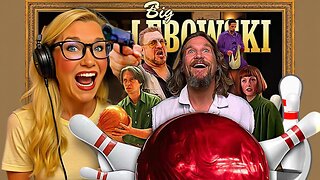 44:54
44:54
SouthernbelleReacts
8 days agoHIS RUG… I CAN’T STOP LAUGHING 🤣 | Big Lebowski Reaction
2078 -
 2:17:46
2:17:46
megimu32
2 hours agoOFF THE SUBJECT: Reddit Meltdowns, Music Takes & Bodycam Breakdowns
25.2K5 -
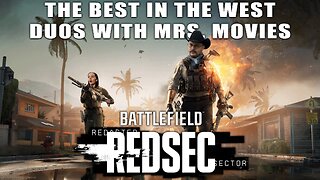 LIVE
LIVE
The Rabble Wrangler
8 hours agoRedSec with Mrs. Movies | The Best in the West Carries His Wife to Victory!
162 watching -
 LIVE
LIVE
DLDAfterDark
2 hours agoTrans Man's Death Threats To Christian Conservatives - Whistlin' Diesel Tax Evasion
175 watching -
 23:42
23:42
Robbi On The Record
2 days ago $5.55 earnedWhat's happening in the republican party?? BTS of Michael Carbonara for Congress
47.8K11 -
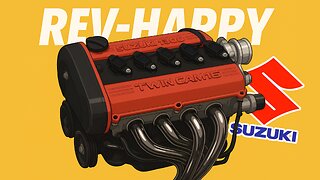 4:53
4:53
PistonPop-TV
2 days ago $0.02 earnedThe G13B: The Tiny Suzuki Engine That Revved Like Crazy
2.27K -
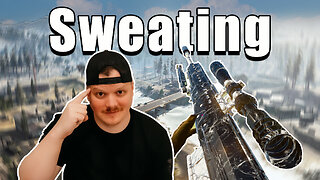 LIVE
LIVE
GritsGG
4 hours ago#1 Most Warzone Wins 4000+!
234 watching -
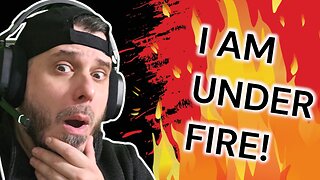
Joker Effect
2 hours agoSTREAMER NEWS: WHAT IS JOKER DOING?! Where is the streamer space going now?! Q & A
7.15K1 -
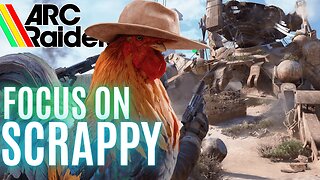 LIVE
LIVE
Eternal_Spartan
5 hours ago🟢 Eternal Spartan Plays Arc Raiders - New Updates! | USMC Veteran
58 watching